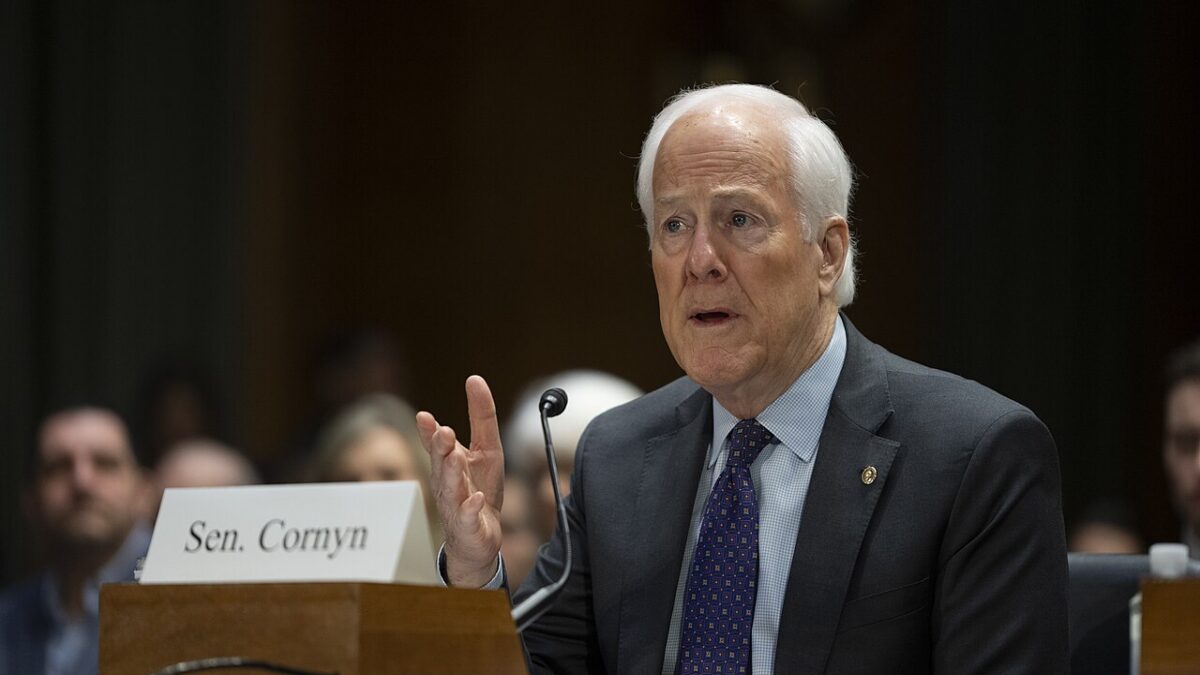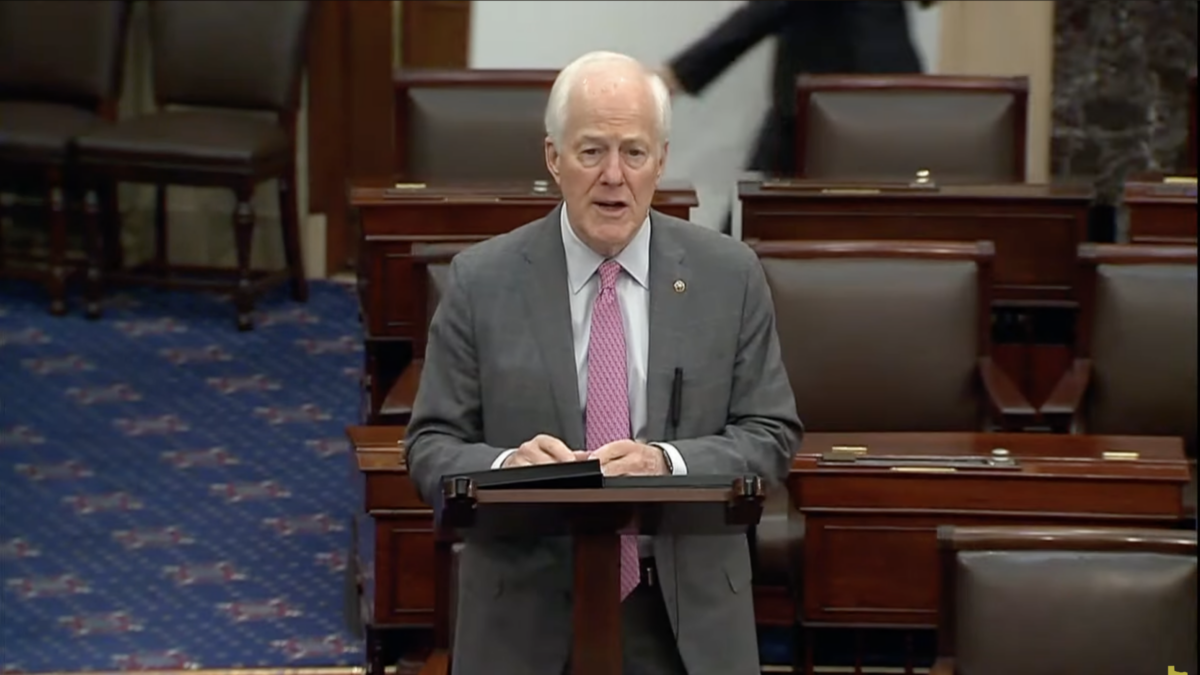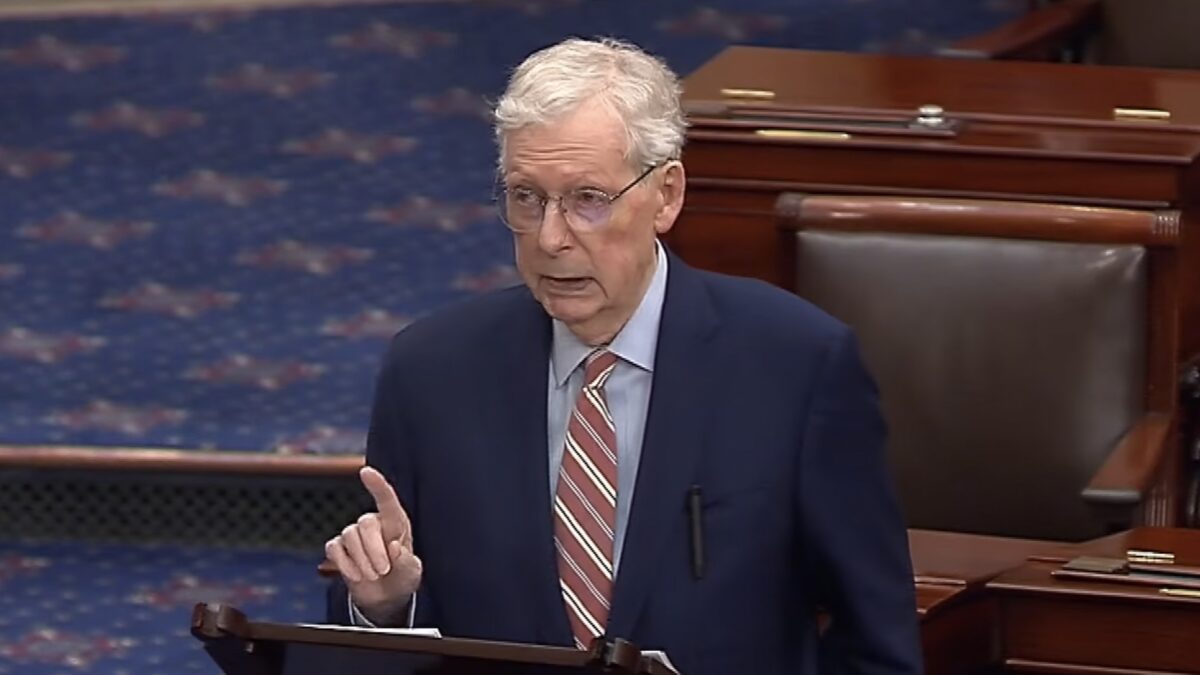
Since a self-described democratic socialist, Sen. Bernie Sanders, is a major contender for the Democratic Party’s nomination for president, and polls suggest one-third of American millennials and over 40 percent of self-described Democrats view socialism favorably, perhaps it’s time to be attentive to great nineteenth-century French thinker Alexis de Tocqueville’s highly critical opinion of socialism.
Most Americans who express positive opinions of socialism, I expect, have some type of European social democracy in mind. Generally speaking, that seems to be what Sanders proposed in his November 19 speech at Georgetown University, in which he defined what he means by democratic socialism.
Sanders made clear that he did not favor government control of the means of production à la Marxism-Leninism. Sanders also specified that he supported private businesses (as long as they don’t shift assets and jobs off-shore) and thinks innovation and entrepreneurship should be rewarded. Picking up on widespread and legitimate frustration with crony capitalism, Sanders underscored his opposition to bailouts and corporate welfare more generally.
It’s More of a Soft Socialism
So where, you might ask, is the collectivism? Seeking to root his democratic socialism in American experiences, Sanders essentially proposed a return to Franklin Roosevelt’s New Deal and Lyndon Johnson’s Great Society and extending the economically activist government agendas associated with these endeavors. Freedom, Sanders maintained, requires government-provided economic security.
For Sanders, this translates into particular programs such as a Medicare-for-all single-payer health care system, massive public works to create jobs, significant minimum-wage increases, and any number of measures designed to reduce wealth and income inequalities. On a more philosophical level, these and other programs Sanders proposes are based on what he regards as a series of economic rights (which he asserts rather than demonstrates) that governments have the prime responsibility to realize.
Some might describe this as all rather mild: as essentially taking America towards the type of economic systems that exist in much of Western Europe. But it’s precisely such “moderate” versions of socialism that were the primary object of Tocqueville’s worries.
Economic Rights and Activist Governments
The essence of Tocqueville’s anti-socialist critique was expressed in a speech he gave to France’s Constituent Assembly following the 1848 revolution. The context was a debate about whether the new constitution should affirm the “right to work of all citizens,” as demanded by a resurgent French Left. By this, they didn’t mean breaking up union monopolies of labor. They meant governments guaranteeing jobs for everyone who wanted to work.
Many French politicians were inclined to affirm such a right as a matter of fundamental law. Surely, the argument went, everyone had a right to work. Indeed, constitutionally upholding such a right seemed trifling compared to the outright collectivization of the economy implied in Pierre-Joseph Proudhon’s famous 1840 claim that “property is theft!”
Tocqueville, however, took a sharply contrasting position. If a right to work was written into France’s constitution, he argued, it would open the door to the state assuming an unprecedented degree of control over economic life. Why? Because to fulfill such a constitutional duty, Tocqueville claimed, the state would either have to force businesses to hire people or create as many government jobs as it took to eliminate unemployment. Either way, it would shatter economic freedom or fiscal rectitude.
Tocqueville didn’t stop here. He proceeded to articulate a scathing appraisal of socialism, none of which, interestingly enough, concerns economics per se.
Socialism’s Fundamental Problem Isn’t Economic
Tocqueville’s first reproach was that socialism—whatever its expression—has an inherently materialistic understanding of humans. “The first characteristic of all socialist ideologies is,” Tocqueville insisted, “an incessant, vigorous and extreme appeal to the material passions of man.” Tocqueville may have wrestled with religious questions for much of his life. Nevertheless, he refused to accept that we’re just another species of animal whose fundamental needs are purely material.
Second, Tocqueville observed that all forms of socialism are inherently hostile to private property: an institution he considered indispensable for civilization. After explicitly referencing Proudhon’s outright anti-property stance, Tocqueville claimed that “all socialists, by more or less roundabout means, if they do not destroy the principle upon which it is based, transform it, diminish it, obstruct it, limit it, and mold it into something completely foreign to what we know and have been familiar with since the beginning of time as private property.”
That’s quite strong language. But Tocqueville’s insight is that you don’t have to engage in out-and-out collectivization to move towards socialistic arrangements.
Today, many Western governments regularly tax more than 40 percent of the highest personal-income bracket. Many other politicians now consider myriad other tax-raising measures normal. Moreover, you needn’t literally take away large portions of people’s property to diminish its liberty-enhancing qualities. Whatever our income status, literally hundreds of thousands of regulations tell us what we may or may not do with our property. The fact that many of us accept this state of affairs as routine underscores just how accustomed we have become to a high degree of un-freedom. Sanders’ democratic socialism would not abolish private property. But it would further compromise the already considerably emasculated protections, freedoms, and incentives provided by private property in America today.
This leads directly to Tocqueville’s last point: that socialism, whatever its form, is irreconcilable with liberty—and not just economic liberty. Here it’s worth quoting Tocqueville at length:
A third and final trait, one which, in my eyes, best describes socialists of all schools and shades, is a profound opposition to personal liberty and scorn for individual reason, a complete contempt for the individual. They unceasingly attempt to mutilate, to curtail, to obstruct personal freedom in any and all ways. They hold that the State must not only act as the director of society, but must further be master of each man, and not only master, but keeper and trainer. For fear of allowing him to err, the State must place itself forever by his side, above him, around him, better to guide him, to maintain him, in a word, to confine him. They call, in fact, for the forfeiture, to a greater or less degree, of human liberty, to the point where, were I to attempt to sum up what socialism is, I would say that it was simply a new system of serfdom.
These words echo Tocqueville’s warnings eight years earlier in “Democracy in America’s” second volume concerning how free societies can easily slouch towards soft despotism.
The serfdom, however, that Tocqueville had in mind wasn’t just what he called society’s reduction to what he called one of “bees and beavers . . . more for skilled animals than for free and civilized men.” It also concerned the fact that socialism reduces the ends of human life “solely” to questions of “material welfare.” In other words, statism plus materialism equals a profoundly anti-human society: one in which individuals become, as Tocqueville put it, merely “an instrument, a number.”
Socialism Is Soulless
So was Tocqueville indifferent to the economic poverty that infuriates Sanders? Not at all. He even thought governments have responsibilities in this area. Nonetheless, Tocqueville maintained that no program of action could involve “substituting the prudence of the State for individual wisdom.” Instead “the notion of duty towards the poor, towards the suffering” had to be grounded in “something more extended, more universal” than anything socialism offfers.
For Tocqueville, such a foundation was found in Christian charity: something which made concrete demands upon people but which, by definition, couldn’t be materialist in its philosophical underpinnings. Again, this echoes “Democracy in America’s” underscoring of the ways in which free societies needs religion—and not just any religion—to temper materialist and equalizing tendencies.
Some of this might seem rather removed from us today. But in the end, Tocqueville’s assessment of socialism is surely dead-on. Even its most sophisticated contemporary advocates believe that governments must assume perhaps indirect but undoubtedly more control of people’s lives in the name of essentially materialist conceptions of what matters in life.
Looking through Sanders’ speech, one can’t help but think he believes that the vast majority of America’s economic problems will disappear if more people have more stuff and are less economically unequal. There’s very little recognition, for example, in his remarks that poverty has in many cases extra-economic causes, most notably family breakdown, single-parent households, and mental illness. Addressing these issues requires much more than just giving people more material things, and often has little to do with economic inequality. They often require moral, even spiritual solutions.
Herein lies what Tocqueville understood to be the greatest danger posed by socialism. It first ignores and then extinguishes the soul. Today’s enthusiasts of the type of socialism Sanders advocates apparently don’t grasp this. All of us, however, ignore that truth at our peril.









